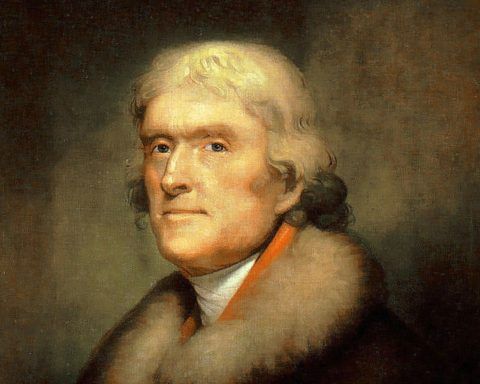In the 1950s, with China falling to the Communists, the Soviets acquiring an atomic bomb, and New Dealers like Alger Hiss being outed as Soviet spies, a popular refrain on the Right and even among some Democrats was that these events occurred because FDR was soft on communism.
To combat this perception, FDR spear-carrier and partisan historian Arthur Schlesinger Jr., while acknowledging some naivete on FDR’s part towards Stalinism, cited the administration’s jailing of CPUSA leader Earl Browder for passport fraud in 1940 as proof of their anti-communism. The context of this arrest did show an awareness on the administration’s part that communism was a security threat. For 1940 was the second year of the Hitler-Stalin military alliance. Overnight, the CPUSA, which had been pressuring the administration for years to fight fascism, now advocated that the US sit this one out. Many in the cabinet, among them Assistant Secretary of State Adolf Berle, feared that the Soviet spy rings in the US (he had recently interviewed former Soviet spy Whittaker Chambers about who had penetrated the government on behalf of Moscow Central) were sharing intelligence information with the Nazis. Time would prove Berle correct.
If the administration was trying to halt this flow of information then they were certainly wise in jailing Browder. Although he would deny to his grave that the CPUSA was recruited for espionage work by the Soviets, the reality was that Browder was an energetic recruiter (he even tried to enlist Sidney Hook, then a supporter but who would later emerge as one of communism’s greatest foes).
Searching for a way to imprison him, the administration happened upon a false statement Browder made when using a US passport in 1934. Although the Party predictably chanted fascist frame-up, Browder had indeed falsified statements on a US passport. Although he denied this at the trial, he had in fact admitted in testimony before the House Un-American Activities Committee the year before that the passport was obtained through dishonest means.
What is striking about the trial, given the CPUSA’s characterization of it as a political frame-up, was that the prosecution never mentioned his politics. Nor was Browder denied appeals; found guilty (after the jury deliberated for less than an hour), he appealed before the Supreme Court who supported the verdict. Browder spent 14 months in the Atlanta Federal Penitentiary, and was released in 1942 by FDR himself as a gesture of good will toward America’s new military partner the Soviet Union.
World War II would be the high point for Browder and the CPUSA. Now “double patriots,” for the US and the Soviet Union (as long as the US remained an ally of Stalin), the CPUSA was hyper-supportive of the war effort, and in doing so, became almost reactionary. Dominating the Hollywood Writers’ Mobilization, a group of screenwriters formed the day after Pearl Harbor, Party members created “guidelines” for screen content that was unquestioningly patriotic: the officer class was to be respected; those who engaged in the black market were to be portrayed an unpatriotic criminals, and critics of the war effort were to be labeled fascists (such thorny matters as the army being segregated were pushed aside).
The Party did an about-face on issues they once championed. They pledged a no-strike policy for the duration of the War; supported the Smith Act (an act designed against them and fascist groups by Congress making it a crime to advocate the overthrow of the US government) when applied toward their enemies, American Trotskyite groups.
This atmosphere allowed Browder the closest thing to independence he would ever experience as Party head, and he would pay the price for it. He took the Party even further into American patriotism, by announcing its pledge to the US Constitution, to the free enterprise system, and even for alliances with big business.
But as with everything else in his political life, Browder would again be used as a sock monkey by political forces. With World War II over, Stalin re-declared class warfare on capitalist nations, and suddenly Browder’s liberalization efforts were now verboten. Within months, Browder was permanently expelled from the Party he championed and sought to mainstream.






